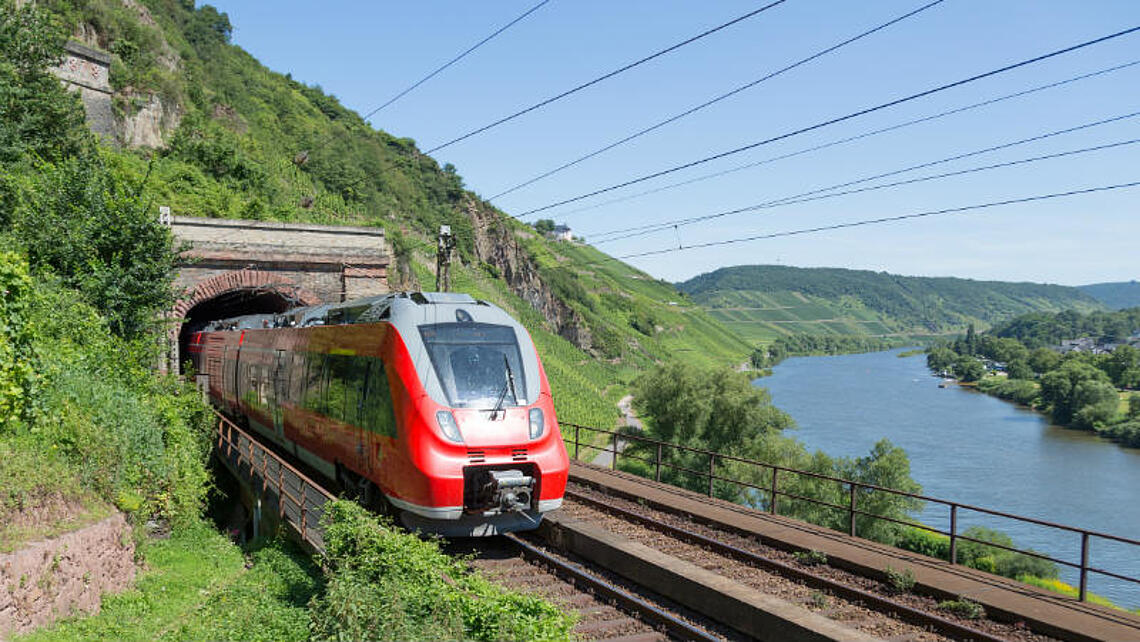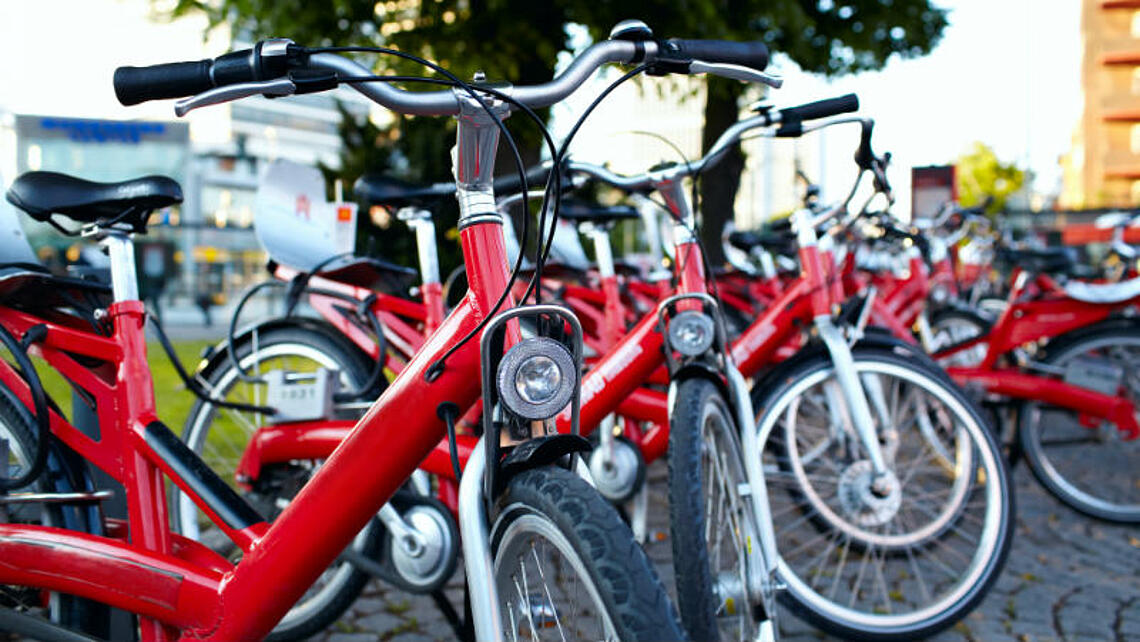
Life in Hamburg
Described by many as "Germany’s most beautiful city," Hamburg combines a high quality of life with a strong economy and countless employment opportunities. Hamburg's success is due in no small part to having successfully united business and legal interests.
10 things to know about Hamburg
✔ 2nd largest city in Germany
✔ 3rd largest harbor in Europe
✔ More bridges than Amsterdam, London and Venice combined
✔ Plenty of parks and waterways to use for outdoor activities
✔ Well-connected within Europe by air and railway
✔ Close to both North and Baltic Seas
✔ Vibrant and cosmopolitan cultural life
✔ Many different international communities
✔ Safe and high quality of life
✔ 24-hour public transit network, walkable and bike-friendly
Something for Everyone
Hamburg has something to offer for everyone. Those who are interested in cultural activities will find Hamburg's many museums, opera and new philharmonic hall (Elbphilharmonie) stimulating. Those who are out to party the night away will find a new home in the Reeperbahn and Schanze districts. The ongoing expansion of the city towards the Elbe waterfront, known as the HafenCity project, will fascinate architecture buffs and casual oberservers alike.
Hamburg is also home to some 350,000 enterprises in all, from large stock companies to a thriving start-up scene, as well as legal institutions of national and global significance, including trial and appeals courts, the Max Planck Institute for Comparative and International Private Law, and the International Tribunal for the Law.
Hamburg is an open-minded and international city that many students don't want to leave at the end of their study programs.

"Perfect blend"
"Hamburg has the great advantage of being a big city but still very calm and quiet in most of its neighborhoods without necessarily being less lively or energetic, which makes it perfect for a balanced but still fun and enjoyable university life."

"Bustling yet calm"
"Hamburg captivated me with its lovely, peaceful ambiance and sense of safety. I fell in love with the beautiful architecture scattered around the city. Despite being a bustling city, Hamburg exuded a sense of calmness to it which was very attractive. "

"Welcoming of the queer community"
"Hamburg is a beautiful and vibrant city that is very very welcoming of the queer community. I was honestly very surprised but so happy to see that so many businesses, and even Bucerius, fly the pride flag."
Hamburg: A safe and healthy place to be
As Germany's second largest city, Hamburg combines the hustle and bustle of a large cosmopolitan city with being a safe and healthy place to live. The city's many green areas encourage a healthy life style, the medical facilities are excellent and the city is safe as long as you follow a few simple rules.
Safety
- Cross the street only when the signal is green. Germans are sticklers for obeying traffic lights.
- Watch out for bikes and don't walk in the bike lanes (usually on the sidewalk, either separated by a white line or paved in red brick)
- Bike riders have to comply with the normal traffic rules (riding in designated bike lanes, only on the right-hand side of the road etc.) and should watch out for distracted pedestrians and drivers (blind spot)
- Stay alert and aware of your surroundings (watch out for pickpockets in crowded places). Don't walk alone when out late at night or in dark, unpopulated areas.
- Don’t swim in the Elbe River or Alster Lake. The Elbe's undercurrent is surprisingly strong and increased by the large container ships. The Alster is a very busy waterway with commercial and recreational water vehicles.

"I always felt safe"
"I came to Germany because I love techno, and I was really impressed with the scene in Hamburg. The people were also very open and respectful, and I always felt safe, even when taking the S-Bahn home from Südpol at 7am on a Saturday morning."
Health
Hamburg has an excellent health care system that includes numerous state-of-the-art hospitals, university clinics and research institutes as well as a tropical medicine institute. Doctors’ practices see patients with appointments and pharmacies have regular and special weekend hours to ensure that health services are available at all times. Health insurance is required to obtain an international student visa. Non-EU students must have insurance that complies with German regulations. The International Office offers detailed guidance on this matter.
German: one language, many dialects
Learning German is no easy task but with some time and dedication, the language opens windows into Germany's culture and history that remain mostly closed to those who rely on English alone.
Official Language
The official language of Hamburg and throughout Germany is German. English is widely spoken and especially younger Germans are eager to practice their English skills. However, knowing a few simple phrases in German goes a long way when it comes to day-to-day activities such as grocery shopping or ordering take out.
Different local dialects
Dialects vary throughout Germany and students who have learned some German may find some of them more challenging than others.
In parts of Northern Germany, a small minority also speaks "Low German" or Plattdeutsch – a Northern German language that is related to Frisian, Dutch and English.
Hamburg has its own version of Plattdeutsch. "Hamburgish" is rarely spoken but some Hamburgish words find their way into the German that Hamburg natives speak. The most ubiquitous is Moin or Moin Moin for Hello. Other commonly used words are deern for girl, tüdelig for confused, angetüdelt for tipsy, duster for dark or Puschen for the slippers that many German wear around their homes.

"Always something new to explore and discover."
"Immersing myself in German culture led to many surprising discoveries about their customs and traditions that differed from my home country. While many Germans speak English proficiently, I was surprised by the importance of the German language in daily life. Learning the language can open up opportunities for deeper cultural understanding and integration."
German food
German food is arguably one of the most underrated and under-appreciated of all world cuisines. With an open mind and some curiosity, you'll see that German cuisine offers more than just cooked potatoes. However, Germany, and especially the larger cities with larger immigrant communities, is also home to a wealth of international food options. Hamburg offers choices from around the world to satisfy everyone's taste buds.
Food in Hamburg
Given Hamburg’s proximity to the North and Baltic Seas as well as its proud maritime traditions, it is only natural that fish is a staple in the Hanseatic city. Whether the ubiquitous Fischbrötchen, a fried or pickled fish sandwich, Matjes, a Northern style pickled herring or Labskaus, a hearty sailors’ hash consisting of preserved ingredients suitable for long sea voyages without refrigeration like potatoes, corned beef, salt-cured herring, fried eggs and pickled beets, fish is a staple on Hamburg tables.
Seasonal and regional specialties
German cuisine celebrates the seasons and the different regions of the country. While some dishes are enjoyed throughout the entire country, others have retained their regional character.
In the spring and early summer, white asparagus, served with cured ham, potatoes and hollandaise, reigns supreme. Strawberries, cherries and plums are other seasonal favorites that are grown in the Altes Land region, just south of Hamburg, which is Germany's largest orchard area.
The colder season is dominated by hearty, warming soups and stews. In December, Germany puts on arguably the best Christmas show in the world with the numerous Weihnachtsmärkte, or Christmas markets, that spring up around the town centers and outskirts. At these markets, you will be able to find tasty delights, such as Glühwein and Feuerzangenbowle, two kinds of hot mulled wine, various Plätzchen (cookies), Stollen (German fruitcake) or savory foods such as Bratwurst (grilled sausage), cabbage and fried potatoes. Restaurants serve up traditional meals like Gans mit Rotkohl und Klößen, or roasted goose with braised red cabbage and dumplings.
Venturing away from Hamburg and its traditional fish dishes, one might try Spätzle, a cheesy egg noodle, in Baden-Württemberg, Maultaschen, large meat-filled dumplings, in South-Western Germany, Weißwurst, a white sausage that is served with a sweet mustard for breakfast in Bavaria or Currywurst, a grilled sausage covered in curry ketchup, in Berlin (where is was supposedly invented and has since spread across the entire country). Another typical fast food choice is Döner Kebab, sliced meats and salad stuffed into a bread roll, which was introduced by Turkish immigrants and is now a late-night/early morning favorite of many party-goers making their way home.

"Delicious things to try"
"I think the food is the distinguishing factor [between Seattle and Hamburg]. There are so many new and delicious things to try in Hamburg. It has been such a pleasure to do so."

"Delicious food"
"I would highly recommend throwing on a pair of sneakers and exploring all of Hamburg by foot. Each neighborhood is unique and offers so much to see and delicious food to try!"

"Very Christmassy"
"I really liked the large number of Christmas markets around the city. Christmas is my favorite festivity, and I was positively surprised to find that Hamburg is a very Christmassy city. "






Money matters: Currency and Payment Methods
The currency used in Germany as well as in most of the European Union is the Euro.
The easiest way to obtain Euros is by using a debit or credit card to withdraw cash from an ATM. Students should check if their credit or debit card provider charges any transaction fees for 1) withdrawing cash while abroad and 2) general use of the card while abroad.
Foreign currency can also be exchanged at the airport or at banks. Please note that both charge rather high fees.
While debit and credit cards are widely used in Germany, Germany is not as cashless as some other countries. Grocery and department stores, bakeries, drug stores etc. all accept debit and credit cards. However, they may not accept all kinds of credit cards (American Express, for example, is rarely accepted in Germany). Smaller shops, like kiosks or bodegas, and public restrooms often only accept cash. Make sure to always carry a little bit of cash in bills and coins with you.

"Having grown up in a neighbouring country, Germany was never far away, meaning that I spent a lot of time here in my childhood. However, one thing I didn’t quite realize the extent of was how dependent Hamburg was on cash."
Where to live in Hamburg: the different neighborhoods
Bucerius Law School actively helps students find accommodation in Hamburg. However students are encouraged to do some research on housing as well, especially if they would like to share an apartment with Germans to gain a deeper insight into German culture and to practice their German. Students can always approach the International Office team for advice on the different neighborhoods.
The following neighborhoods are recommended to students due to their proximity to our campus, their accessibility to public transportation and their various charms.
- Altona/ Ottensen
- St. Pauli
- Hoheluft
- Eppendorf
- Eimsbüttel
- Rothenbaum/Harvestehude
- St. Georg
While these centrally located neighborhoods are the most convenient, they can also be the most expensive. There are more affordable options that are well connected to Bucerius via public transportation. A few of these alternatives include:
- Hamm and Borgfelde
- Barmbek Nord/ Barmbek Süd
- Lokstedt
- Bergedorf
Check out descriptions of the different Hamburg neighborhoods.
Sights and activities
Hamburg is a city dominated by water. Its two main waterways, the River Elbe (which flows throught the harbor) and the River Alster (which forms a lake in the center of town) offer many leisure time activities. But Hamburg has something to offer for everyone: from concert halls, museums, musical theater and fine dining to the famous Reeperbahn party district, HafenCity and the Speicherstadt, a beautiful old warehouse district that is now a UNESCO World Heritage Site.
A city on the water
The influence of the harbor is felt far beyond its shores as the tributaries and canals weave their way through the city. The banks of the Elbe also provide a brief respite from the city along its sandy beaches. Various beach clubs invite sunworshipers to relax and enjoy a drink.
To learn more about the history of the harbor and the people who have come and gone through its waters, a visit to the BallinStadt Emigration Museum is a must. Hamburg’s answer to Ellis Island, BallinStadt covers four eras and the journeys of generations of migrants seeking to establish new lives in new lands.
- New York Times, The World in Miniature: A Model Train (and Plane) Lover's Paradise in Hamburg
- New York Times, 36 Hours in Hamburg, Germany
- The Guardian, For a great night out, head to Hamburg, not London
Well-connected within Germany and Europe
Hamburg, and most of Germany in fact, can be easily explored using only public transportation. Hamburg's public transportation system is outstanding and the city is well-connected to the rest of Germany and Europe via trains and planes. A car is only necessary in the rarest of circumstances.
Public transport
Hamburg has an excellent public transport system that includes subways, regional trains, buses and even commuter ferries. Exchange and Master students receive a monthly student ticket. Summer program participants can purchase tickets at ticket machines in all stations or on the Switch App.
Other transport options include the City Bike rental system, e-scooters (Tier, Lime, Bird), motor scooters (emmy) and car rentals (Car2Go, DriveNow)
Probably the easiest way to get from one place to another is by bike. Since Hamburg is a relatively flat city, they are quick and efficient, especially in the summer when the weather is much better than during other seasons. City bikes can be used for free for rides taking less than 30 minutes.

"Comfortable"
"Although I was living quite far from Campus, I had no problem arriving to classes on time by taking the bus and the metro with a monthly ticket, in a very comfortable journey. Also, unlike Peru, walking in Hamburg or taking the public transport at any time feels safe."
Planes, trains, automobiles and e-scooters
Hamburg’s main train station, or Hauptbahnhof, is centrally located downtown. Regional, national and international trains depart the main station continuously. Train tickets are cheapest when purchased well in advance. The bus terminal right next to the train station offers economical options for travel throughout Germany and Europe.
Hamburg’s International Airport is located in the city’s northeast and can easily be reached by public transit.
Hamburg and Germany in general can easily be navigated without a car.

"Charming Cities"
"My favorite experiences during the exchange term are probably my journeys all over Germany and Europe. I visited many charming cities and was able to enjoy museums, parks and cafés to a considerable extent."




Embracing the "onion look": weather in Hamburg
Contrary to popular belief, Hamburg actually has fewer rainy days in a year - 144 on average to be exact - than Munich, for example. The city’s northern position and maritime climate means that the winters are cold and wet, the summers are mild and wet with occasional bouts of warmth and sunshine, and everything in between is a variation on these themes. Strong maritime winds mean that the weather changes constantly. True "Hamburgers" know to be prepared by dressing in layers ("onion look") and carrying sunglasses as well as umbrellas. A popular saying is that “There is no bad weather, there is only bad clothing.”
Hamburgers head outside at the first glimpse of the sun, regardless of the temperatures. You might even find them sitting in front of cafés, bundled up in winter clothes and wrapped in blankets provided by the café, eating ice-cream while soaking up the sun. But even without sunshine, Hamburgers believe in catching some "fresh (albeit cold) air" and then warming up with Kaffee und Kuchen (coffee and cake) in a cozy café.


